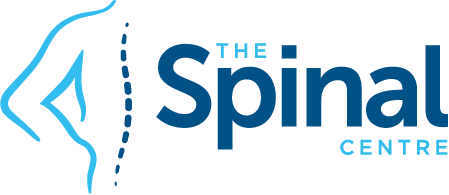
Cardiovascular Disease
 Every year, millions of Australians end up in hospitals, suffering with cardiovascular disease that is largely preventable, reversible – even curable.
Every year, millions of Australians end up in hospitals, suffering with cardiovascular disease that is largely preventable, reversible – even curable.
Despite the most advanced technologies and drug therapies available, cardiovascular disease continues to be our nations number one killer of both men and women. Cardiovascular disease (CVD) is now the leading cause of death worldwide.
Unfortunately conventional testing for cardiovascular disease relies heavily upon just a few often misleading lab values, such as cholesterol (“good” and “bad”), and triglycerides. If these are not out of the normal range, individuals are commonly told they are at low risk.
However, many of us would know someone who has died of a cardiovascular event even though their ‘cholesterol was normal’. So there has got to be more to it.
That is why we developed the Cardiovascular Profile.
The Cardiovascular profile moves beyond conventional assessments and into 21st century medicine genetic screening, important heart and artery inflammatory markers. These are the tests that you should be getting done, but are unfortunately missed by most practitioners.
The Cardiovascular Profile includes testing for the following cardiovascular disease markers:
C-Reactive Protein – High Sensitivity
Studies have shown that measuring C-Reactive Protein (CRP) with a high sensitivity test can help identify risk of cardiovascular disease (CVD). High Sensitivity CRP is an indicator of the level of inflammation in the blood vessels. In fact, some researchers say that CRP is a better predictor of your risk of heart disease than cholesterol levels are.
Fibrinogen
Fibrinogen is a type of plasma glycoprotein synthesised in the liver, that is responsible for the coagulation of blood. While fibrinogen levels are elevated, a person’s risk of developing a blood clot may be increased and, over time, they could contribute to an increased risk for developing cardiovascular disease.
MTHFR gene
Genetic variations on the MTHFR gene determine how active the MTHFR enzyme is. These variations can cause up to a 70% reduction in the MTHFR activity and can cause an increase of homocysteine levels through disruption to folate metabolism.
Homocysteine
Researches have shown a link between high levels of this amino acid and early development of coronary heart disease, deep vein thrombosis, peripheral vascular disease, stroke, Type 2 Diabetes, obesity and many other diseases.
Lipid Studies
A full lipid profile includes; Total Cholesterol, HDL, LDL, Triglycerides, LDL/HDL Ratio, Chol/HDL Ratio. High cholesterol is not the underlying cause of heart disease as we are led to believe.
The truth is systemic inflammation resulting in “injury” to the arterial endothelium is the major contributing factor, therefore identifying and reducing inflammation is essential.
Fasting Glucose
The fasting blood glucose level test is used to screen for and diagnose diabetes. It is important part of screening for cardiovascular disease as well, as diabetes is a major risk factor for hypertension, stroke, heart attack, atherosclerosis.
Co Enzyme Q10
Co Enzyme Q10 (CoQ10) is essential for all energy-dependent processes in the heart, including heart-muscle contraction. CoQ10 inhibits LDL oxidation and thus halts the progression of atherosclerosis.
CoQ10 also decreases proinflammatory cytokines and decreases blood viscosity which is helpful in patients of heart failure and coronary artery disease. It is very important to regularly measure CoQ10 levels if you are on Statin Drugs.
For more information or to purchase the Cardiovascular Profile – goto the Spinal Centre Store.

Fish Oil, Statin Drugs and Heart Attacks
Statin drugs are sold under a variety of names including Lipitor (atorvastatin), Zocor (simvastatin), Mevacor (lovastatin) and Pravachol (pravastatin). If you take one of these drugs, you should also use a fish oil to reduce your chance of a ‘major coronary event’. This an important article for all those who take Statin drugs.

Red Bull Can Give You a Stroke
Just one can of the popular stimulant energy drink Red Bull can
increase the risk of heart attack or stroke, even in young people.
The caffeine-loaded beverage, popular with university students and
adrenaline sport fans to give them “wings”, caused the blood to become
sticky, a pre-cursor to cardiovascular problems such as stroke.

The Role of CoEnzyme Q10 in Cardiovascular Disease
Patients with cardiomyopathy (enlarged heart) are often deficient in
CoQ10. Studies show that oral supplementation with this nutrient may
lead to extraordinary clinical improvements in these patients,
including increased tolerance for physical activity and extended life
expectancy.
According to Australian researchers, oral CoQ10 therapy before cardiac
surgery also improves energy production,
improves post-operative heart function, and shortens hospital stay.

Alcohol and Heart Disease
Consuming too much alcohol is bad for your heart and arteries, according to a recent study.
It’s
well known that over-indulging in alcohol can give you a beer belly,
however the results of this study show that drinking heavily can cause
high blood pressure, stiff arteries and rigid heart muscles – all
dangerous conditions that could lead to fatal heart attacks and strokes.

Reduce Your Heart Attack Risk with Vitamin D
We are literally starving for vitamin D. Our quest to prevent
overexposure and skin cancer has meant that the majority of
Australian’s are now vitamin D deficient. Recent research has now shown
some alarming results for the effects of vitamin D deficiency on the
body.
The new research, run by Harvard Medical School has shown that a low intake of Vitamin D boost the risks of heart attacks and stroke by an astonishing 60% – a scary figure considering that most of us are vitamin D deficient.





